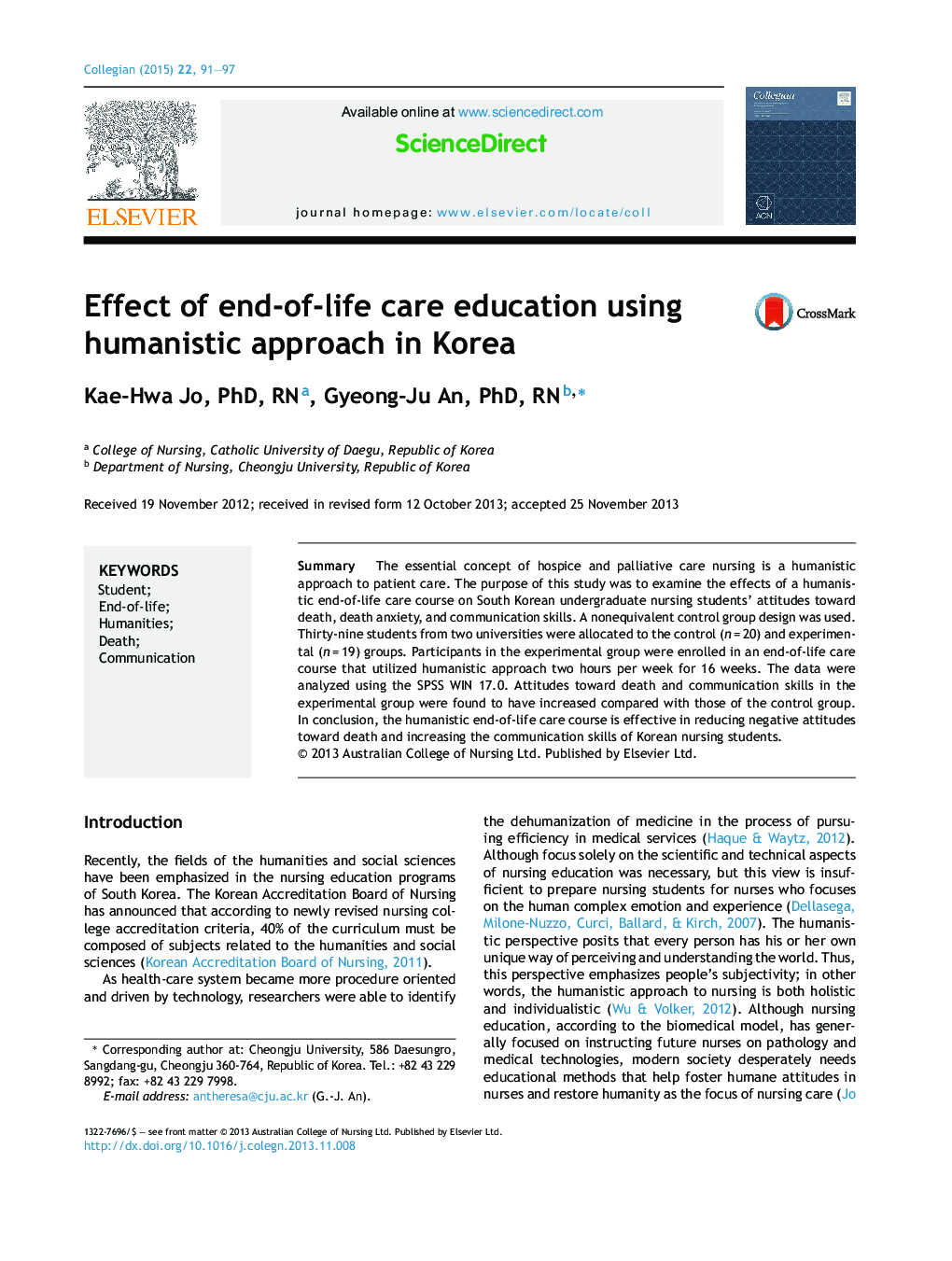| Article ID | Journal | Published Year | Pages | File Type |
|---|---|---|---|---|
| 2646556 | Collegian | 2015 | 7 Pages |
SummaryThe essential concept of hospice and palliative care nursing is a humanistic approach to patient care. The purpose of this study was to examine the effects of a humanistic end-of-life care course on South Korean undergraduate nursing students’ attitudes toward death, death anxiety, and communication skills. A nonequivalent control group design was used. Thirty-nine students from two universities were allocated to the control (n = 20) and experimental (n = 19) groups. Participants in the experimental group were enrolled in an end-of-life care course that utilized humanistic approach two hours per week for 16 weeks. The data were analyzed using the SPSS WIN 17.0. Attitudes toward death and communication skills in the experimental group were found to have increased compared with those of the control group. In conclusion, the humanistic end-of-life care course is effective in reducing negative attitudes toward death and increasing the communication skills of Korean nursing students.
